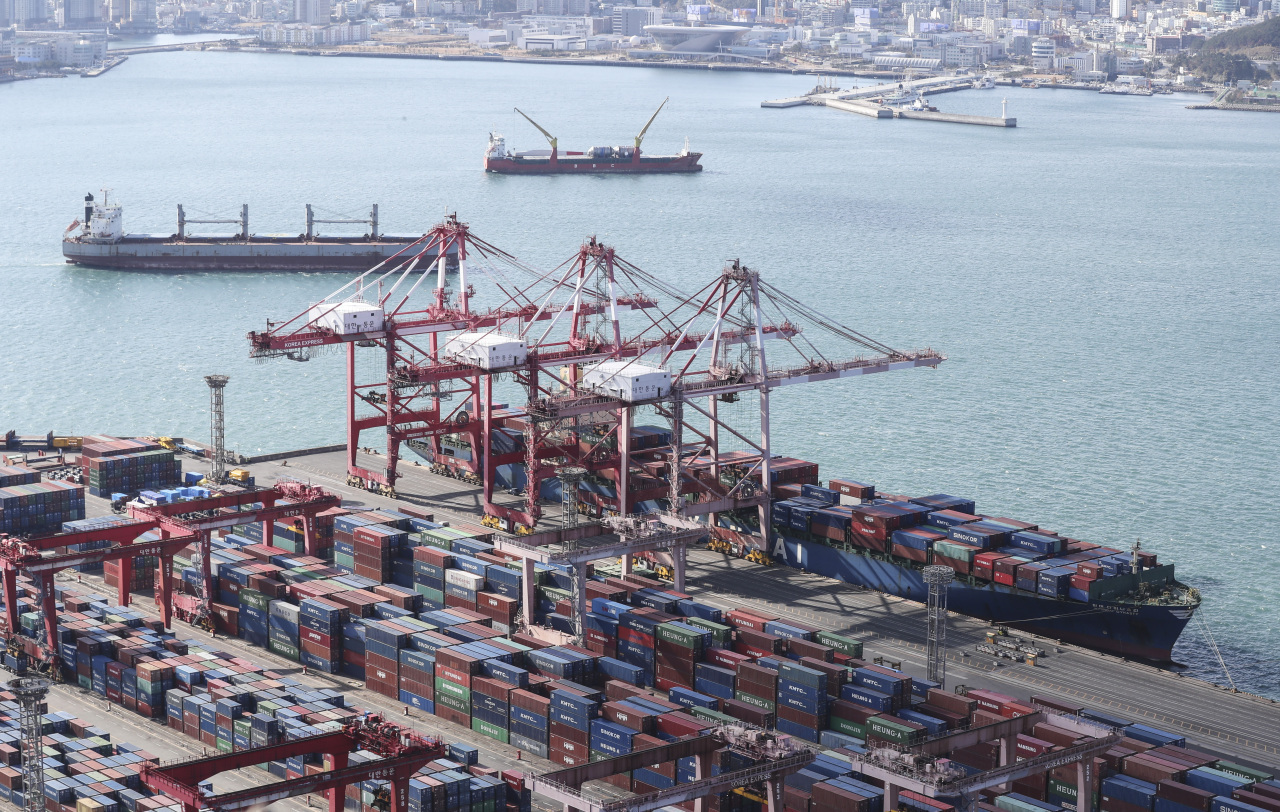 |
Aerial view of shipping containers at South Korea's southern port city of Busan (Yonhap) |
South Korea logged a current account surplus for the 19th straight month in November, but the surplus was much smaller than a year earlier due to increased imports driven by high energy and raw material prices, central bank data showed Tuesday.
The current account surplus amounted to $7.16 billion in November, down from a surplus of $9.18 billion tallied a year earlier, according to the preliminary data by the Bank of Korea (BOK).
The reading marked the 19th straight month that the current account has been in the black since May 2020. The November figure was slightly larger than a surplus of $6.95 billion in October, the data showed.
During the January-November period, the country posted a cumulative account surplus of $84.23 billion.
The on-year decline in the surplus stemmed mostly from sharply increased imports amid high commodity prices, including prices of crude oil.
Imports came to $53.7 billion in November, an increase of $16.74 billion from a year earlier. The rise was driven mostly by a 72.9 percent on-year surge in raw material prices. In particular, crude oil prices jumped 127.8 percent, the data showed.
With the rise in imports, the goods balance measuring inbound and outbound shipments saw its surplus decline to $5.95 billion in November from the previous year's $9.95 billion.
November's exports totaled $59.65 billion compared with $46.92 billion a year earlier.
The service account, which includes outlays by South Koreans on overseas trips, posted a deficit of $140 million in November, compared with a deficit of $980 million a year earlier. The deficit, however, marked a turnaround from the previous month's surplus of $630 million.
Despite the on-year contraction, the service account was propped up partly by strong transport revenue amid high shipping rates. Transport revenue amounted to $4.49 billion in November, sharply larger than the previous year's $2.4 billion, the data showed.
The primary income account, which tracks wages of foreign workers and dividend payments overseas, logged a surplus of $1.49 billion in November, larger than a surplus of $480 million in the previous year as dividend income increased.
The capital and financial account, which covers cross-border investments, posted a net inflow of $6.54 billion in November, smaller than a net inflow of $9.8 billion a year earlier, the data showed. (Yonhap)







![[Robert Fouser] Accepting migrants in South Korea](http://res.heraldm.com/phpwas/restmb_idxmake.php?idx=644&simg=/content/image/2024/10/31/20241031050896_0.jpg)
